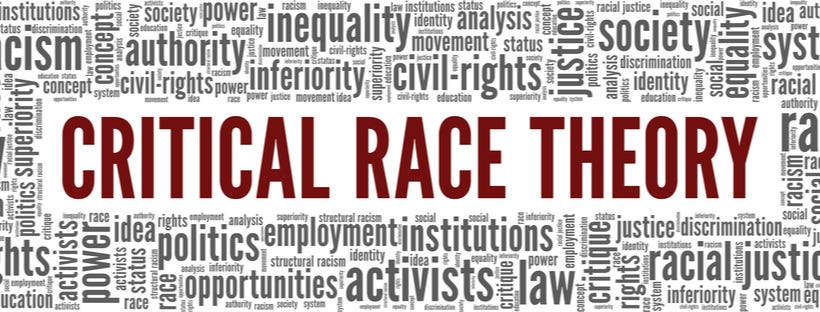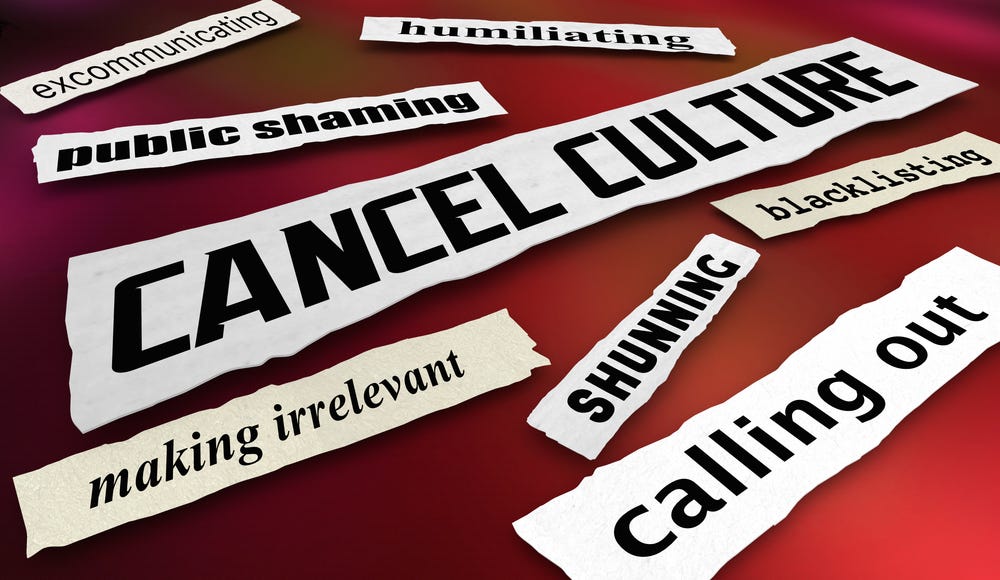E-Pluribus | August 23, 2021
An alternative to CRT bans, civil discourse does not mean agreement, and how China is becoming a STEM leader.
A round up of the latest and best writing and musings on the rise of illiberalism in the public discourse:
Tony Woodlief: State Bans on Critical Race Theory Won’t Work
At the Wall Street Journal, Tony Woodlief warns that entrenched educational bureaucracies will find ways around legislation currently being advanced in many states to try to rein in the influence of Critical Race Theory (CRT.) Woodlief suggests a more productive and long-term solution is to take aim at massive school districts that control the curriculum for huge numbers of students and return power to smaller local boards that can better represent the needs and desires of the communities they serve.
I recall this experience as state legislatures debate bans on teaching Critical Race Theory, a body of conjectures that is, according to its defenders, simultaneously sound and nonexistent. Even where allowed to stand by courts, these laws, like other efforts to rein in education bureaucrats, will be swallowed up in the spreadsheets and matrices into which state departments of public instruction lure and quietly strangle every curricular reform.
That’s not to say that state leaders have no options for warding off CRT, transgender mania, Howard Zinn -style grievance Marxism and other dogmas festering in schools of education. They have the authority to implement a solution that harnesses the common sense of everyday American parents. They can bust up large school districts.
[…]
Breaking up school districts would make school boards more accessible and responsible to the communities they serve, allowing for customization of instructional practices and curricula. The board members of massive districts like Los Angeles (483,234 students) and Miami-Dade (347,484) are union-backed, professional education bureaucrats. Bust their monopolies into a few hundred small districts, and the ideologues surreptitiously pushing “equity” training and racial-sensitivity modules could face serious election challenges from anyone with a compelling point of view and the willingness to campaign door to door.
Read it all here.
Conor Friedersdorf: ‘When My Satire Becomes Popular, I Must Ask, What Is the Problem?’
At The Atlantic, Conor Friedersdorf interviews Nigerian author Elnathan John about the current state of public discourse, touching on cancel culture and free expression, among other things. Though John makes it clear conversations about political, cultural and social issues are important, one should not sacrifice the right to speak one’s mind just to avoid offense, and too many people agreeing or applauding should be a signal for introspection.
Friedersdorf:
Do you think such fears about what many now call “cancel culture” are justified or overwrought?
John:
There have always been codes of silence. At every time in history, to have access to people's true thoughts, one needed to learn a community’s codes and go deeper than superficial conversation. But today many people feel disoriented because the code is changing very fast and few understand where the changes come from. It used to be that if I didn't offend the chief of the village or the gods of the village, I could have freedom in other aspects. Now the source of power is less clear. It is globalized. You can say something about someone thousands of miles away and have instant repercussions.
And it is democratized: So many more people, especially young people, exercise power in controlling these public conversations. With their savvy and their numbers, they can demand consequences for certain kinds of speech. But their code is always changing, often very quickly and unpredictably, so many people feel that until they understand the new equilibrium, they must be circumspect observers and cannot talk freely.
Friedersdorf:
Is this an American phenomenon, or do you see it in Germany and Nigeria too?
John:
I would say that it is globalizing––you know, it is in the process of doing that, because the biggest site of these contestations is the United States, and the United States is the greatest exporter of culture. So its conversations quickly become the standard for conversations elsewhere.
[…]
Friedersdorf:
Do you mean that efforts to advance social justice are doing collateral damage to freedom of expression?
John:
At times, yes.
I think that right now, centuries-old oppression and discrimination are being challenged, often by people who were not able to talk about themselves with human dignity before, because they weren’t present in the imagination of the people who shaped public discourse. Now they have the power to claim space for themselves and to say, “I have been here; I demand to be acknowledged.”
The demolition of injustices is good and necessary. I think of it like a house being constructed. Construction usually begins with demolition, right? It’s not always elegant, and it’s not always painless. You know, there will be glass that will splinter, bricks that come down, that kind of thing. So sometimes we have this collateral damage that happens when things are being demolished.
Read the whole interview.
Sergiu Klainerman, Percy Deift, and Svetlana Jitomirskaya: As US Schools Prioritize Diversity Over Merit, China Is Becoming the World’s STEM Leader
Without ignoring or minimizing China’s authoritarian system, these three immigrant mathematicians who studied in American universities are writing at Quillette to warn US institutions about the danger of getting sidetracked by secondary issues. Klainerman, Deift, and Jitomirskaya say that along with the poor quality of K-12 math education, social-justice and diversity concerns can undermine efforts to keep up with China’s advances in science and technology-related fields.
The low quality of public K-12 math education in the United States has affected all demographic groups. But it has had a particularly strong negative effect on non-immigrant blacks and Hispanics, as well as young women of all races. This has led to a disappointing level of representation for these groups in STEM disciplines, which in turn has provoked understandable concern. We applaud efforts to address this problem, insofar as they help remove remaining obstacles and prejudices, and encourage more women and underrepresented minorities to choose careers in mathematics and other STEM disciplines. Indeed, partly as a result of such steps, the representation of women in our profession has increased dramatically over the last 50 years.
But what started as a well-meaning and sometimes beneficial effort has, over time, transformed into a bureaucratic machine whose goal has gone well beyond fighting discrimination. The new goal is to eliminate disparities in representation by any means possible. This is why education officials in some school boards and cities—and even entire states, such as California and Virginia—are moving to scrap academic tracking and various K-12 gifted programs, which they deem “inequitable.” Operating on the same motivations, many universities are abandoning the use of standardized tests such as the SAT and GRE in admissions.
Read it all.
Around Twitter:
Even unsuccessful gender discrimination lawsuits can impact behavior of businesses:
Megan McArdle responds to a criticism of her recent column on the folly of using the Civil Rights Act to try to fight school mask bans (which she also opposes):
The American Bar Association, law school diversity and the law:
And finally, the chilling effect of Hong Kong’s “National Security” laws:










